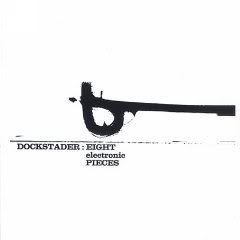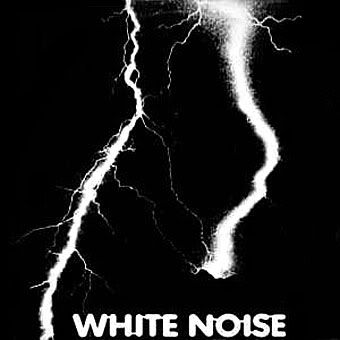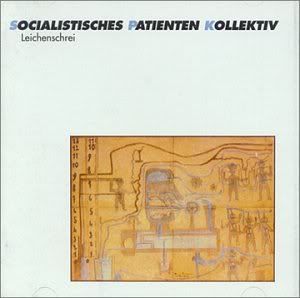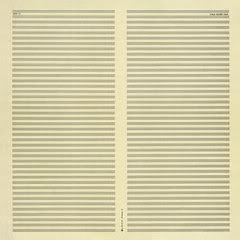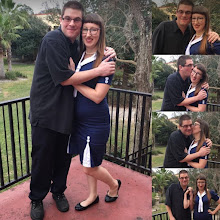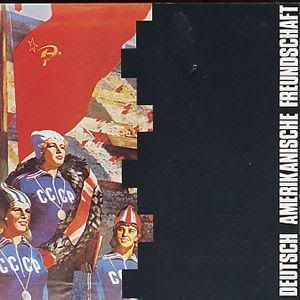
Mute, 1980; available
19 tracks, 38:40
Wow, this certainly took me long enough! DAF's debut album, PRODUKT DER..., was the very first album to be reviewed here. Now, almost 100 entries (the next review gets THAT honor) and three years into it, I'm finally getting around to their sophomore release! Kurt Dahlke and bassist Michael Kemner had departed (Dahlke for Der Plan and the solo project Pyrolator), while singer Gabi Delgado-Lopez was back in. Along with drummer Robert Görl and guitarist Wolfgang Spelmanns, the lineup featured synth whiz Chrislo Haas, who was on Der Plan's debut single and later co-founded Liaisons Dangereuses. Legendary producer Conny Plank was behind the controls for this release, which is ironic since he produced many krautrock classics; the slight krautrock elements of PRODUKT had completely dissipated by this point. The seven songss on the A-side were produced in the studio, while the B-side featured a brief studio piece and eleven tracks from an absolutely unhinged live show. The latter was supposedly recorded by accident; the technician wanted to record Wire, who DAF was opening for. What a fortunate mistake! These chaotic bursts of noisy synthpunk are an absolute treat. Delgado-Lopez is at his most aggressive, very rarely singing in the deep voice he became known for. Most of the time he's screaming, howling, or blasting out the words at a rapid pace. The band is at the top of its game, with Görl providing furious punk drumming while Spelmanns and Haas create a frenzied mass of guitar noise and early synth squelching. For variety, the title track is a brief synth solo by Görl, while the closing "Y La Gracia" is performed by Haas and Delgado-Lopez alone. These two tracks, along with the brief and goofy "Volkstanz", provide some relief from the onslaught of the remaining live gems. A particular B-side standout is "Die Lustigen Stiefel", which has Delgado-Lopez singing about how "the funny little boots are marching over Poland" to the tune of "nanny-nanny-boo-boo" while the others provide a NY No Wave-style herky-jerky groove. The studio track, "Gewalt", is a nice bit of noise that's far too brief; a track of the same name appeared as the B-side to "Kebabträume", but they're different songs. The A-side of DIE KLEINEN is rather good as well; "Essen Denn Schlafen", "Co Co Pino", and "Nacht Arbeit" are early synthpunk bliss, and the lengthy atmospheric "Osten Währt Am Längsten" is both a great introduction and a nice bit of calm on what is otherwise one hell of a ride. After this, DAF would release two more punky singles (both with EXCELLENT B-sides as well!) before Spelmanns and Haas departed. Görl and Delgado-Lopez continued as a duo, releasing a couple albums of decent early EBM. They've reunited and had side projects and whatnot many times since, but PRODUKT and DIE KLEINEN are their most experimental and daring works. As a nifty bonus, the lyrics are provided in German, Spanish, and English!
